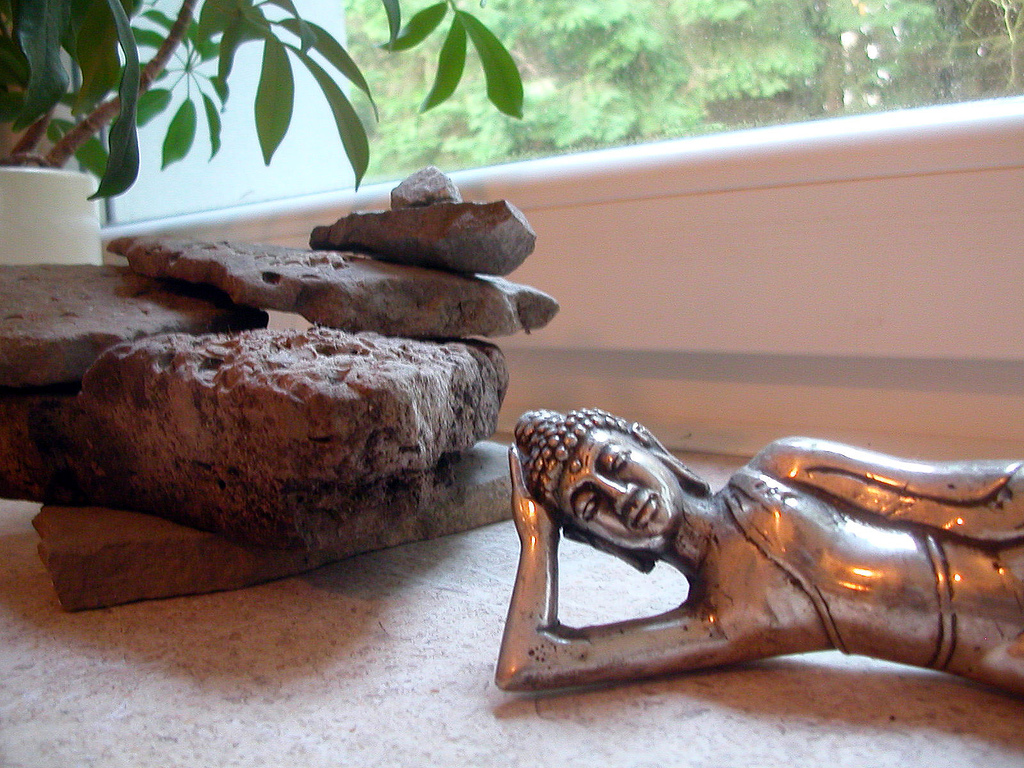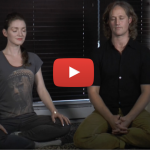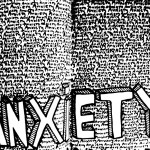
Do you find it challenging to meditate? Do you fall asleep sometimes and struggle to find the peace you’re looking for? Why is meditation so hard?
These are the questions that kicked off part one of this two part blog series exploring the challenge of meditation. Let’s pick up where the previous post left off and explore the last three reasons why you might find this practice is hard to start and tougher to maintain over the long haul.
6 Reasons Why Meditation Is So Damn Hard
In the previous post we covered the first three reasons. Now let’s look at reasons 4-6.
- You Have Resistance to Letting Go
- Resistance Takes Many Forms
- You Can’t Underestimate the Momentum of Your Mind
- You Can’t Control Your Unconscious Mind
- You Don’t Know What You Don’t Know
- There’s Nothing In It For You
4. You Can’t Control Your Unconscious Mind
Do you think you can control your thoughts? Do you always know why you do what you do?
Through our conscious and sub-conscious minds, we mostly know what we want and don’t want. What we like and don’t like. We can pretty well understand the basic motivations that drive our daily decisions.
For example, “I want to meditate.” That comes from your conscious mind. You are inspired and maybe you had some experiences of inner peace and you want to meditate now to cultivate that quiet and calm. Pretty straightforward.
But there are other parts of you and me that are unconscious. I’m talking about deeper drives. Psychology helps us understand that these are not in our control. And based on over 100 years of psychological exploration, we can safely admit that all of us have thoughts, motivations, and drives that are unconscious and that effect our choices and our psychology.
Here is how psychotherapist Ivan Staroversky describes the unconscious mind.
The unconscious mind consists of the primitive, instinctual wishes as well as the information that we cannot access. Although our behaviors might indicate the unconscious forces that drive them, we don’t have easy access to the information stored in the unconscious mind. During our childhood, we acquired countless memories and experiences that form who we are today. However, we cannot recall most of those memories. They are unconscious forces (beliefs, patterns, subjective maps of reality) that drive our behaviors.
In this light, it’s clear there will always be aspects of our development that we can’t control. Most likely, this holds true for our meditation practice too. It seems probable that there are unconscious forces in you and me that are at odds with the vulnerability, letting go, and transparency of meditation.
It might help to explain why meditation can be hard sometimes and to give it space.
5. You Don’t Know What You Don’t Know
My former teacher used to say this all the time. You don’t know what you don’t know. It’s a humbling truth to contemplate.
In meditation, you are endeavoring to let go of the world and everything in it. That’s a big deal, even if it’s for just a few minutes.
And there will always be things about yourself, reality, and awareness that you don’t know yet. Things that could be exerting an influence on you now or later. That’s just true. And because we don’t know, there isn’t much we can do about it. No doubt, this can be influencing your practice.
And let’s be clear. I’m not talking about anything magical here. I’m just saying that you can’t know everything all the time. You are a sensitive, dynamic, evolving creature living in the midst of unprecedented change, dizzying stimulus, and mounting responsibility. At any given moment there are countless influencers, inner and outer, gross and subtle, affecting the quality of your awareness and motivation.
At the same time, there is something freeing in not having to know all the time. It can help you loosen your grip on your own ideas and who you think you are. And in general, that’s a good thing when it comes to meditation.
In some ways, meditation is all about being at peace with the fact that you don’t know what you don’t know. You’re striving to let everything be exactly as it is. Why? Because it forces you to stop fighting reality, let go, and make space in yourself.
You can never really anticipate what’s going to happen in life and it’s the same in meditation. You don’t know what you don’t know and there is nothing you can do about it. And if you think about it for even a second, that principle covers a huge swath of our human experience. A lot of it is a mystery.
6. There’s Nothing In It For You
Meditation promises a lot. I know, I’m always telling you how good it is. How many benefits you’ll reap. That’s all true from a certain point of view. But there is another side to meditation that is seldom spoken about in the mainstream. It definitely helps to explain why so many of us struggle in meditation.
Here’s the ugly truth. There is nothing in it for you. You don’t get anything from meditation. On the contrary, eventually you give up everything. Every desire, every hope, every fantasy, everything you cherish…it all has to go while you practice.
Ironically, the deep peace and stillness you seek comes from letting everything go, including that peace and stillness you cherish. True meditation requires you to let go of every inch of progress you think you’ve made. It requires you to let go of every blissful experience of peace.
Is this a cruel trick of the universe or am I just the worst salesperson for meditation ever?
Well, I’m not sure, but in my experience, it’s only when we let it all go that we can develop the kind of confidence and poise that meditation promises. Abiding peace comes with the unshakeable knowledge that we are not what we think, we are infinitely more than that. Dedicated practice is the only thing I know of that can give you that knowledge.

How To Carve A Canyon of Inner Peace
So there it is. Meditation is hard. I’ve probably only covered a few of the reasons why it’s challenging, but I hope it gives you some perspective and helps you go easy on yourself next time you find yourself struggling.
Meditation is an incredible practice. But it puts you up against some large forces that you aren’t in the habit of contending with. So it makes sense that you don’t just waltz your way into the sunset and get enlightened on your first few tries.
But that’s no reason to give up.
Is building a house easy? Is starting a business effortless? Is becoming a pro at anything a piece of cake? No way. They all take tons of effort. But usually that effort pays off big time. And it’s the same with meditation.
And here’s a little secret. If you persevere, it’s a little like starting a new stream at the top of that mountain we talked about in part 1 of this series. But this time, you are creating a different momentum.
If you are consistent, over time you’ll carve a canyon of inner peace. And then you’ll look back and you’ll wonder how it happened.
So what next? Well, that’s easy…go meditate!
By Morgan Dix



Hello! so far lm enjoying what lm reading and thanks for the help! l am praticing meditation now for afew years and some days are alittle okay and others no good at all, l have learnt to except the fact that there is chatter going on and except it rather than fight it! but just to be aware of it but it takes a20mins for my mind to be what l can say, calmer! l look so farward to your e mails about teaching one to meditate and love to read your advice, thank you very much and look forward to more.
janet bell
Hi Janet, Thanks so much for your warm words. I’m happy you are enjoying the articles. And I’m so glad you said that about accepting the chatter in your head and not fighting it. That’ so important and always easier said than done. I can relate 100%.